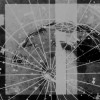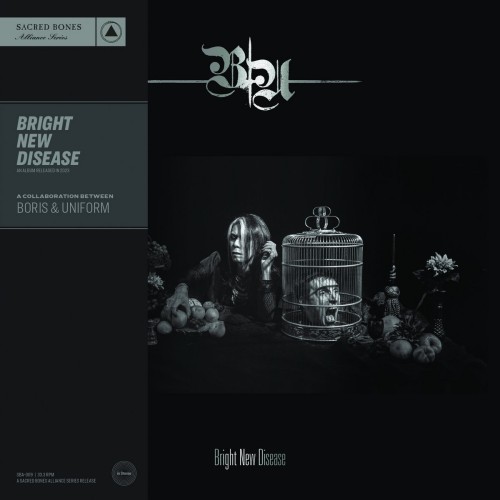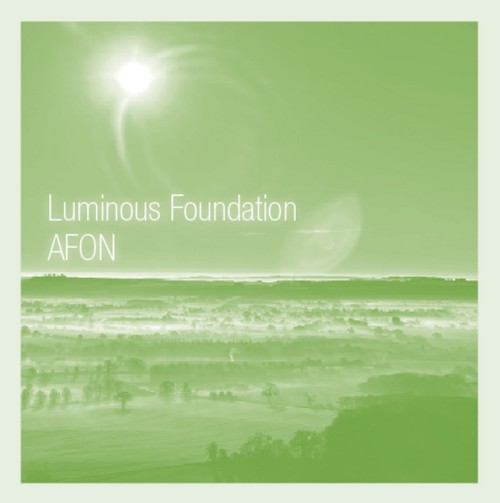 London-based duo Kontakte‘s 2014 release These Machines brought a blissfully blistering end to their silence of two years between albums. Here, Ian Griffiths and Stuart Low give a detailed breakdown of how and why each of the album’s tracks came into being.
London-based duo Kontakte‘s 2014 release These Machines brought a blissfully blistering end to their silence of two years between albums. Here, Ian Griffiths and Stuart Low give a detailed breakdown of how and why each of the album’s tracks came into being.
*
“Shut Your Eyes And You’ll Burst Into Flames”
Stuart: This track was birthed over a number of years, the original bare bones were written in 2005 – 2006 and it existed in that form for a few years until 2009 when I started recording bits and pieces as a home demo. It was during this time that the idea for a ‘desert’-sounding lead guitar came to me, along with the extremely droney guitars underneath (which everyone seems to think are synths), which helped emphasize the desert sound I was trying to achieve. I’d been listening to a lot of
Earth which inspired the mid-section, I thought that slowing the track down to a glacial pace would prove effective, and perhaps not be what people were expecting. The heavy final section was written very quickly one night when I was struggling to find a way to close the track, it was all very spontaneous and happened rather out of the blue.
The absence of drums in the front end and mid-section was very deliberate and we chose to use a real, human drummer (my cousin Andrew Taylor from the band Dropkick) for the first time in the history of Kontakte, as we felt a real rock drum beat and sound was what was required to do justice to the ferocity of the music. Andrew used to play metal in his teens so we knew he would be up to the job, even though it’s been a while since he was required to play in such a style. We definitely gave him a workout!
“Fear Of Music”
Stuart: We started laying the foundations for this track back in 2011, which existed purely in structural form as a bass part that Ian had written. I added guitars a full octave down from the bass to give it some serious low end. Slowly but surely over a number of years the track morphed into what you hear now, and includes parts written by former member
Gary McDermott. If memory serves me correctly, Ian went slightly mad writing the glitchy drum parts, and almost had a complete nervous breakdown when transferring the track to a new computer and new version of Cubase.
There were difficulties along the way, such as the mid-section which was originally a keyboard and guitar line — which existed as a ‘live’ entity for at least a year — but I was never happy with it. Thankfully, one rainy evening Ian came up with a funky synth part which meant we could throw that guitar part in the bin where it belonged and I could concentrate on improving my amateurish keyboard skills to replicate it live.
“Alpha Beta Gamma Delta”
Ian: Probably the furthest we have ever stepped sideways from the Kontakte template to date, but it also feels like one of the most accomplished tracks we have ever released. It always felt during the writing of this album that we would be producing something a little different and this track sums up that intent. All of the electronic elements were sequenced and after the initial melodies were written it was more a case of trying to find the right tones and sounds for everything to gel together.
What seems like a fairly straightforward 4/4 tune is actually quite complex in terms of the layers; it could have become quite muddy, but hopefully everything has been given enough space to breathe. Ben Worth (our ex-guitarist) supplied us with some perfect drones which gave the track a solid base to fit into and the last thing to slot in was the “Alpha chant”. This happened almost incidentally at first, one of those happy accidents that ends up collecting all the loose ends together and actually becoming the hook and focal point of the entire track.
“Nuclear Winter”
Stuart: We needed some sort of drone intro for the track “Sci-Fi rising”, and “Nuclear Winter” was born, initially as something we only ever thought we’d use in a live environment. The track is basically
Kontakte’s answer to free jazz (!) in that there is a beginning and an end but what happens in between changes each time it is played. A fixed structure did end up existing for a while and this became the recorded version, which worked really well. Of course the current live version is now completely different from this, and is far superior in my opinion!
“Sci-Fi Rising”
Stuart: The main guitar melody had existed for years as something I’d mess around with now and again. I was deep into learning how to use Logic and doing home demos when I decided to give this one a crack. At some point during this process I invented an open guitar tuning with certain strings tuned to the same pitch which led the way to a more droney sound that sat well under the main melody. This tuning also led to some interesting sounds and textures on the heavier, distorted section. This section was probably the most challenging to record guitar-wise on the entire album.
Ian initially played bass guitar on this (and still does live) but in a moment of inspired genius used a Halion bass synth to come up with the ridiculously funky electronic bass part heard on the recording. The noisy second half was written out of the blue in my dining room one afternoon and was one of those inspired moments where we both caught each other’s eye and immediately realised that we’d nailed it. My home demo version of this song can be found on the free Fear of Music EP.
“Space Junk”
Ian: Happy memories of writing this one evening when the creative spirit just seems to take over and after an hour or two of fiddling about and focusing on something that was once just an initial sketch, before you know it a full track has appeared. It was clear that, as prominent as the guitars are on
These Machines, the album as a whole just needed something to balance it out and the idea of a completely electronic track was born.
This track is really all about the beats and the way they swing and twist, stop/start and judder about. The keys motif was intended to be cyclical, repetitive, in order for the beats to remain at the centre of the listener’s attention. This track didn’t want to be too busy melody-wise; it would have detracted from the initial idea if it had become another track that built to a climax of noise. The noise is there but it’s all lurking under the surface. “Space Junk” has a tension to it where you think something might happen, but hopefully surprises by taking a very different route. It’s a dirty track, a little bit tongue in cheek and really good fun to play live!
“Immortal Engines”
Stuart: An epic in every sense of the word. The original working title for this was “Upbeat”, which needs no explanation. The front half has a deliberately delicate melody with an equally delicate lead part with a minimal amount going on and the idea was to utterly destroy this when the second section kicked in. I was very happy to hear this second section described in a review as a “dancefloor nightmare” or words to that effect. If you’re listening carefully you will notice that a melody does translate from the first half to the second, somehow linking the two, but these are where the similarities end.
We both agreed that this track needed to be ridiculous and completely over the top. I’d say that the guitar “solo” near the end is definitely played with tongue firmly in cheek, it’s just the most silly ascending part imaginable. I think this is probably the most euphoric track that we’ve released, it’s intended to be a big slab of joyous, silly noise that just smashes you right in the face.
“All Watched Over…”
Stuart: It would have been easy to end the record with “Immortal Engines” and a cacophony of noise, but it felt like there was room for something else to ease us back to reality. This track was written to sound sad but also optimistic and we really hope this comes across. Like some others, it had existed for a number of years in the vault before finally taking form as a really shitty sounding demo that I recorded one long, drunken evening at home. We chose to avoid using drums here entirely because the demo didn’t have any and that seemed, although it sounded rough, to be a true representation of the track.
We could have quite easily employed some sort of string section to attempt to tug at your heart strings during the chorus but given the context and the overall ‘vibe’ on this record it seemed more honest to have this played on the Korg synth (it’s not a coincidence that this record is called These Machines). In the time since the album release we’ve reworked this track to fit our live show and the version we play is fantastic and is all down to Ian’s subtle, but effective, drum programming. I really hope we can release this version of the track at some point in the future.
These Machines is available to download and as a limited-edition CD from The Collapse Of Everything.
 London-based duo Kontakte‘s 2014 release These Machines brought a blissfully blistering end to their silence of two years between albums. Here, Ian Griffiths and Stuart Low give a detailed breakdown of how and why each of the album’s tracks came into being.
London-based duo Kontakte‘s 2014 release These Machines brought a blissfully blistering end to their silence of two years between albums. Here, Ian Griffiths and Stuart Low give a detailed breakdown of how and why each of the album’s tracks came into being.


